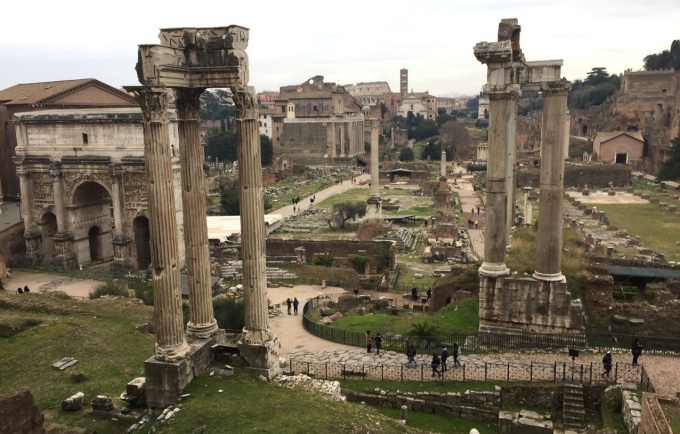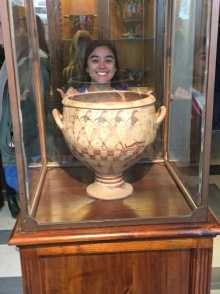What is Classics?

The Roman Forum
Classics is an intensely interdisciplinary field of study comprising the culture, history, languages and material remains of ancient Greek and Roman civilizations.
Students of classics are students of:
ARCHAEOLOGY
By examining the objects, architecture and other physical remnants of an ancient civilization, students begin to form a tangible connection with the people whose lives served to advance modern medicine, technology, systems of government, and agricultural and military practices.
ART
Thousands of antiquities, including sculpture, pottery and reliefs, have survived to the present day, offering 21st century scholars and artists the opportunity to study not only the sophisticated techniques, but also the storytelling power of these lasting links to ancient cultures.
LINGUISTICS
Classical Greek and Latin formed the foundation of the modern Romance languages. As some of the oldest documented human languages and writing systems, to study Latin and Greek is to study the early human mind and thought process, as well as the complex symbiosis between oral and textual communication.
LITERATURE
From mythology to epic poetry to drama, the literature of classical civilizations engages with the most fundamental human emotions and concerns. Students encounter pivotal works like Vergil's Aeneid, Homer's Iliad and Odyssey, Plato's Symposium and Sophocles' Antigone, while researching the contemporary circumstances that led to their production.
PHILOSOPHY
Socrates, Plato, Aristotle, Marcus Aurelius — these names are synonymous with ancient philosophy. Spurring an intellectual revolution, they are among the many significant figures who, by creating and defining rational thought, contributed to the core understanding of mathematics, anatomy, astronomy and more.

Classics students visit the Capitoline Museums, Rome
"I was attracted to the Classics PhD program at Buffalo because it combined excellent training in Latin, Greek and a range of fundamental sub-disciplines, such as epigraphy, with an exposure to innovative approaches to the ancient world."
– Thomas Banchich, PhD '85